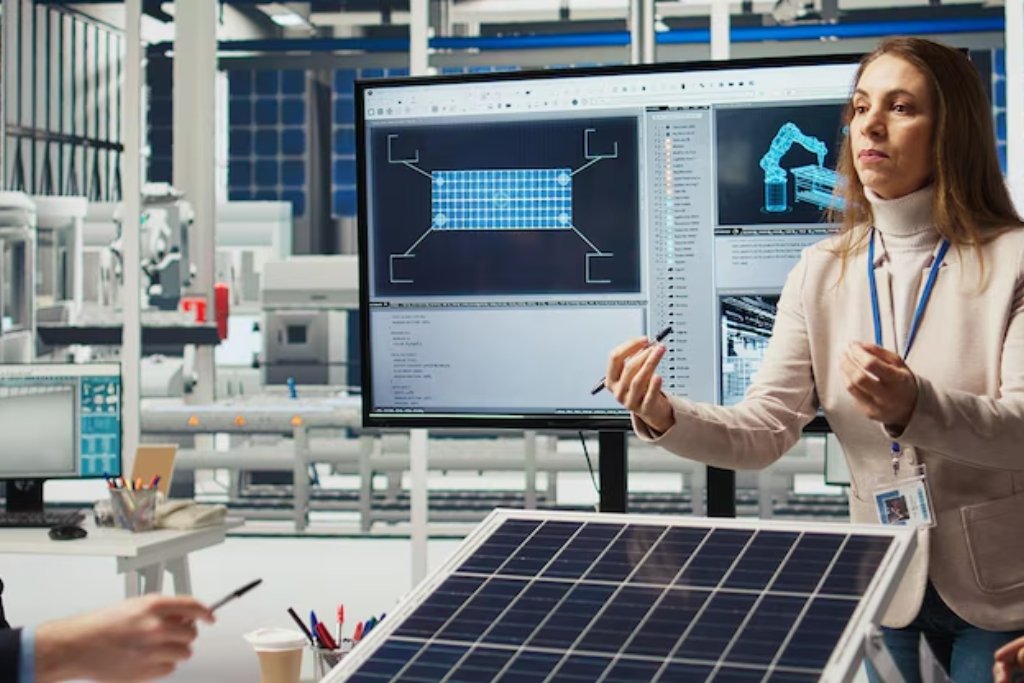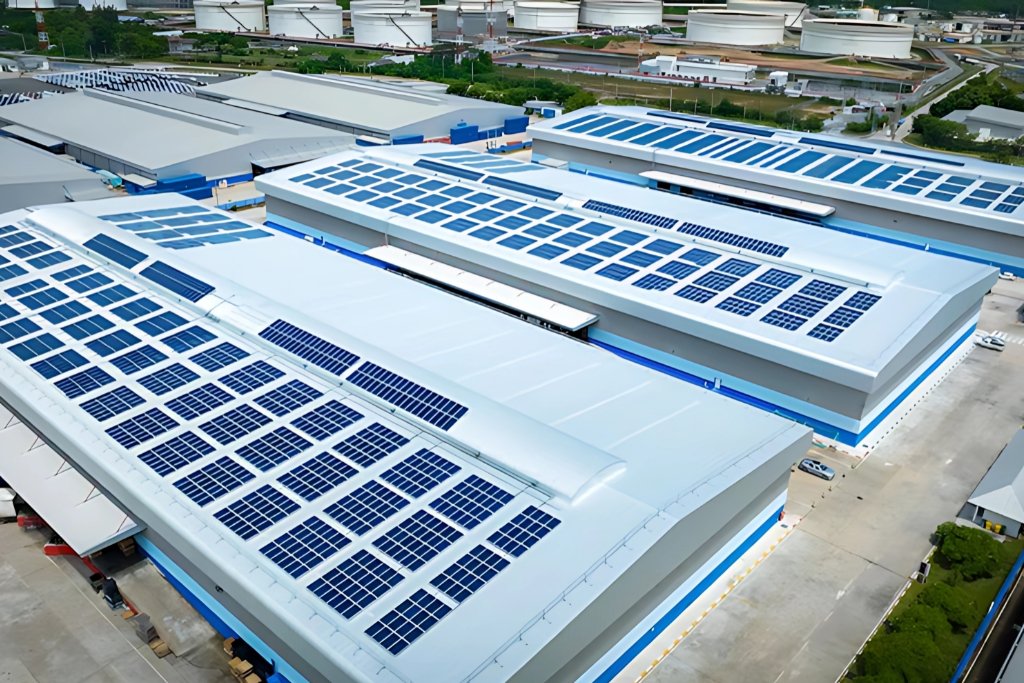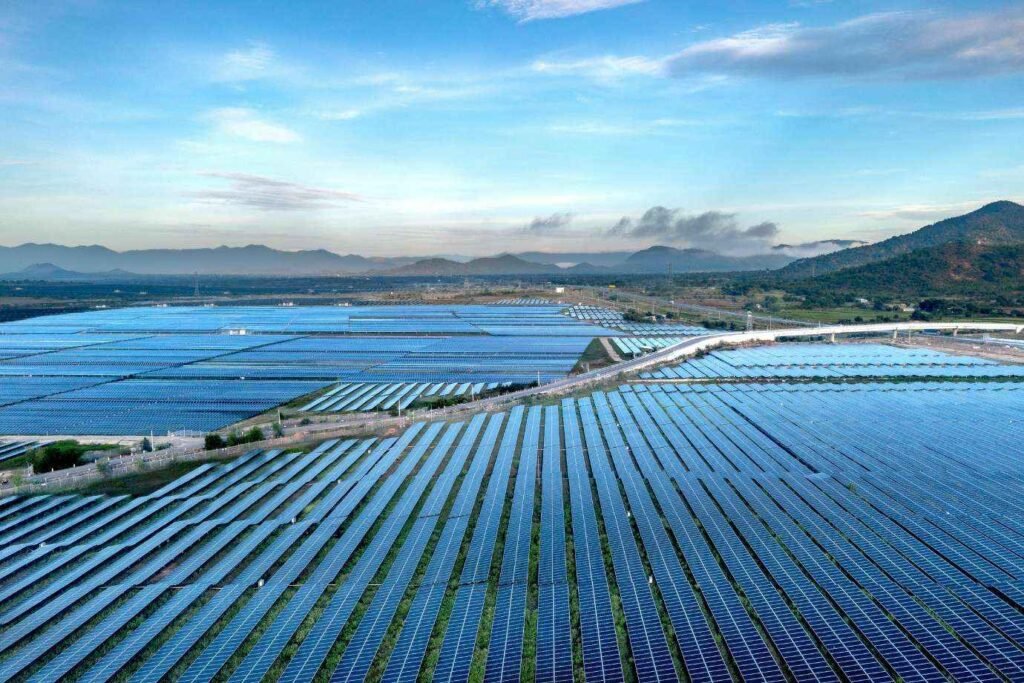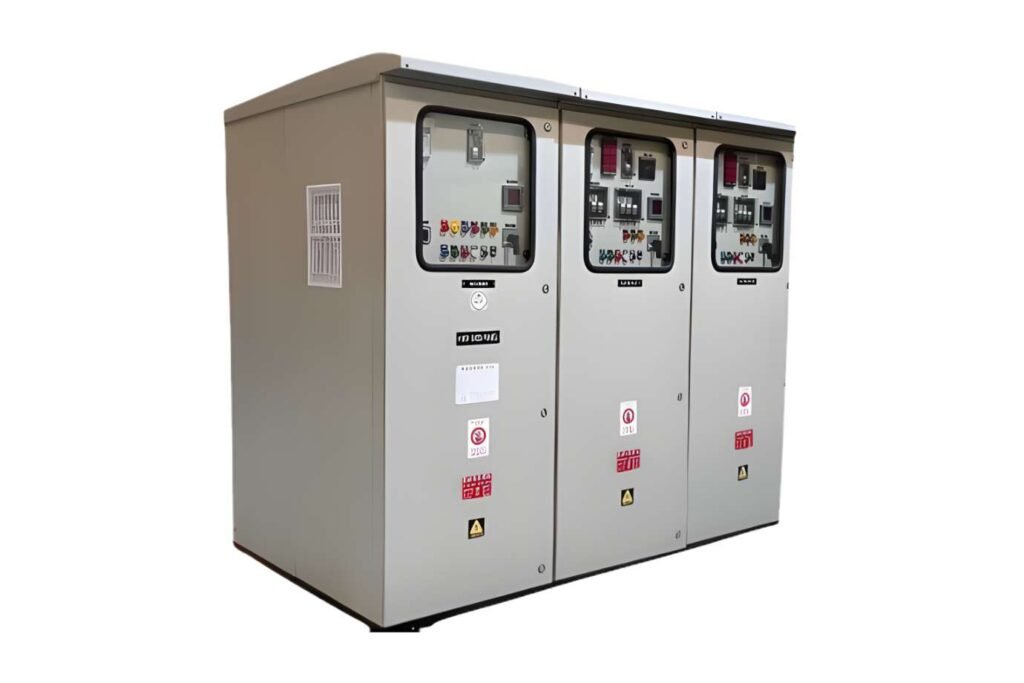Introduction
An eco-conscious solar manufacturing plant consists, of course, not only in making green energy products but also doing it in a sustainable manner. Being involved in the purchase of raw materials or even waste management, every facet counts. The best solar plant are one’s that have truly paid the environment-conscious dollar and those that balance environmentally friendly measures with performance excellence.
10 Key Features of an Solar Manufacturing Plant

1. Sustainable Raw Materials
An eco-conscious solar manufacturing plant will strive to use materials sustainably and keep away from harmful chemicals. They may use, in fact, recyclable or non-toxic materials in their panel design. Therefore, all processing means less carbon emissions and, possibly, panels that have the least footprint-theoretically-practically throughout their life.
2. Energy-Efficient Operations
The use of renewable energies in the production process is a feature of green manufacturing. Efficient lighting, heating, and automation, combined with these renewable energy implementations, reduce dependence on fossil fuels. The best manufacturing plant is said to be that which generates its power from solar energy, thus making itself a symbol of sustainable operation and handling of the solar industry.
3. Water Conservation Measures
Environmental plants work toward monitoring and reducing water production. They install advanced water treatment, rainwater harvesting, and recycling systems. These reduce wastage of water and prevent the depletion of groundwater.
4. Waste Management and Recycling
Recycling silicon scraps, glass, and aluminium is the best way to avoid landfill waste. Ensuring proper sorting and disposal of chemical wastes help protect the soils and environment. Such a plant with stringent waste disposal protocols can claim to be more in line with international green standards.
5. Green Building Infrastructure
From insulation to ventilation, green building design saves energy; solar roofing, natural ventilation, and smart sensors are all features that would make a plant green. Therefore, these would ensure that the manufacturing facility does not become an environmental liability that contradicts the very eco-benefits the product intends to offer.
6. Minimal Carbon Footprint Logistics
An ideal manufacturing plant would structure its logistics chain as a means of cutting the emissions down. Local sourcing, fuel-efficient transport, or even good routing are some of the factors considered. An environmentally conscious approach will consider the whole life cycle of a panel, not just its production.
7. Certifications and Compliance
Environmental certifications, such as ISO 14001, RoHS, or LEED, show the commitment of a plant towards environmental care. Audits, third-party verifications, and transparency all serve as means to build trust.
8. Employee Training and Awareness
Staff awareness is vital for maintaining environmentally friendly practices. Plants carry out training on energy savings, waste management, and safety. An educated workforce serves to maintain sustainability goals across all departments.
9. Digital Monitoring and Automation
Smart systems and IoT solutions establish real-time energy, emission, and waste monitoring. Automation assures better operational performance while sustaining and improving sustainability standards.
10. Community and Environmental Contribution
Environmentally friendly industries aim to serve local communities and ecosystems. They plant trees, assist in programs for clean water, and promote environmental awareness beyond factory premises, thus elevating the sustainability standards. Eco-certifications such as ISO 14001, RoHS, or LEED are a valuable representation of a plant’s environmental commitment.
Who We Are?
ENEEPL is touted as the best solar manufacturing plant committed to combining performance and sustainability in every solar module produced. Strict green guidelines remain the priority of the solar manufacturing plant, so from energy sourcing to packaging. Clean energy is being harnessed, waste is minimized, and eco-compliance is adhered to, all to make sure that their clients get an honest solar solution.
Why ENEEPL is the Best Choice to Buy?

Being among one of the most respected names, ENEEPL has established itself as one of the best solar manufacturing plant by integrating green policies at the heart of its working. Their team works using energy-efficient machines, and the designs are prepared with reuse in mind. Clients all across India return to us when they book solar manufacturing plant services for large-scale as well as tailor-made solar projects.
Conclusion
A well-respected manufacturing plant looks beyond profit and takes an active role in caring for the environment. Every green task performed during design, implementation, and delivery counts. The best solar manufacturing plant means that the whole investment is made toward sustainability and performance.




